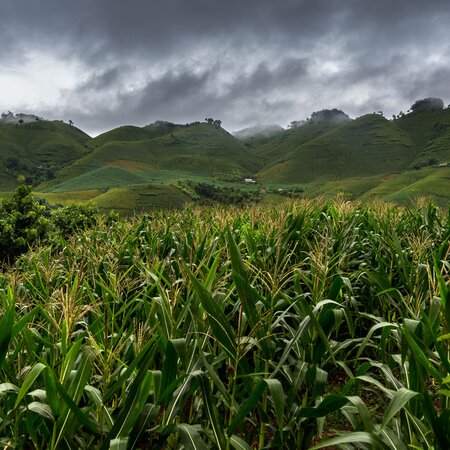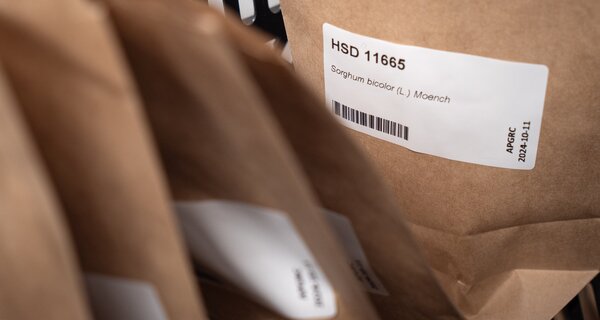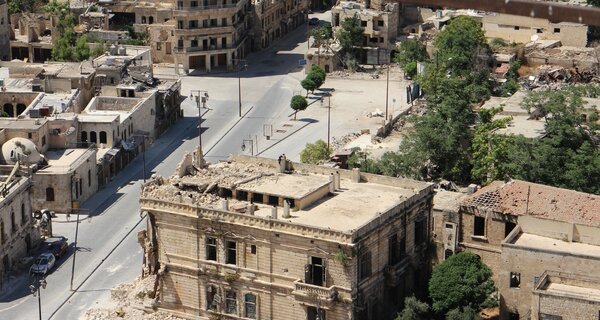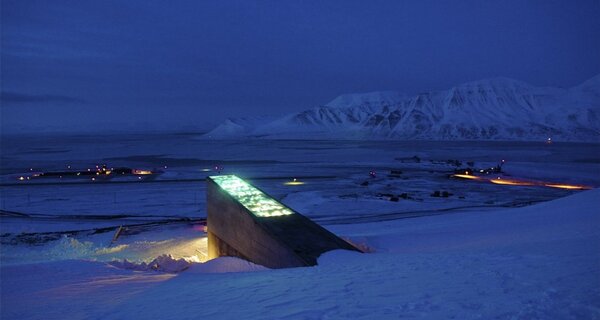Sudan’s National Genebank Begins Rebuilding as Famine Threatens
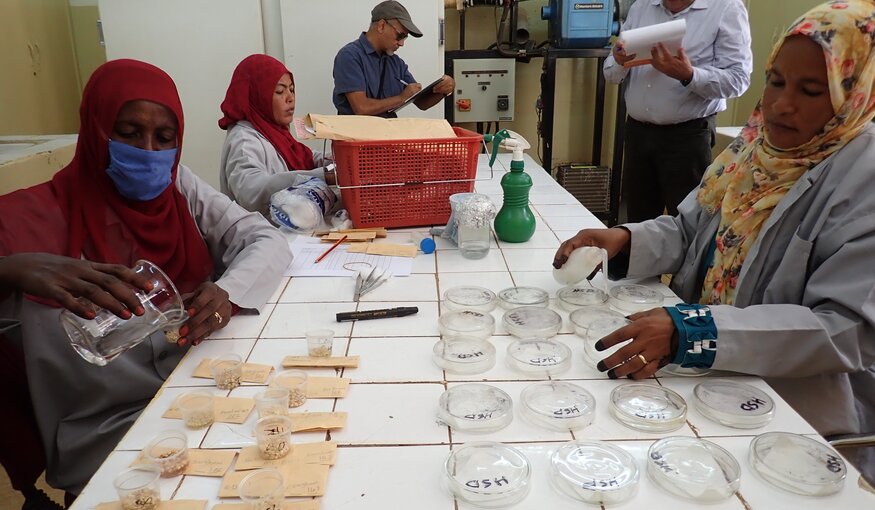
13 March 2025
Staff count the cost of armed conflict and step up efforts to conserve Sudan’s unique collection of sorghum and other crops.
Almost two years after Sudan’s civil war broke out, the northeast African nation is experiencing one of the world’s most devastating humanitarian crises.
With much of the population now displaced, about 24.6 million Sudanese face acute hunger. The United Nations reports that 637,000 people are on the brink of famine.
However, about 136 kilometres northeast of Sudan’s capital, Khartoum, a symbol of recovery and hope is emerging from the ashes of war. Located in Wad Medani on the west bank of the Blue Nile, the country’s national genebank is rebuilding its unique seed collection and counting the losses from looting, lack of government funding, and power disruptions that often last more than 12 hours a day.
The Agricultural Plant Genetic Resources Conservation and Research Centre (APGRC) houses Sudan’s national collection of crop diversity. Before the war, the APGRC genebank held more than 17,000 accessions of different crops and other plant species. Most were landraces, also known as farmers’ varieties or heirloom varieties. The collection also included wild relatives of sorghum, pearl millet, sesame and eggplant. But all that changed in December 2023.
An armed rebel faction drove government forces out of Wad Medani and APGRC workers fled to safer regions of the country. They scrambled to back up seeds at another research station in Elobeid. When Wad Medani was liberated in January 2025, staff members found that the genebank’s deep freezers – crucial for seed storage – had been looted. Aluminum pouches of seeds had been ripped open, and their contents scattered all over the floor.
Emergency Reserve and BOLD Step in to Help
Yet Ali Babiker, Director of APGRC, and his colleagues never lost hope. And with support from the Emergency Reserve for Genebanks, Sudan’s national genebank is making a fresh start.
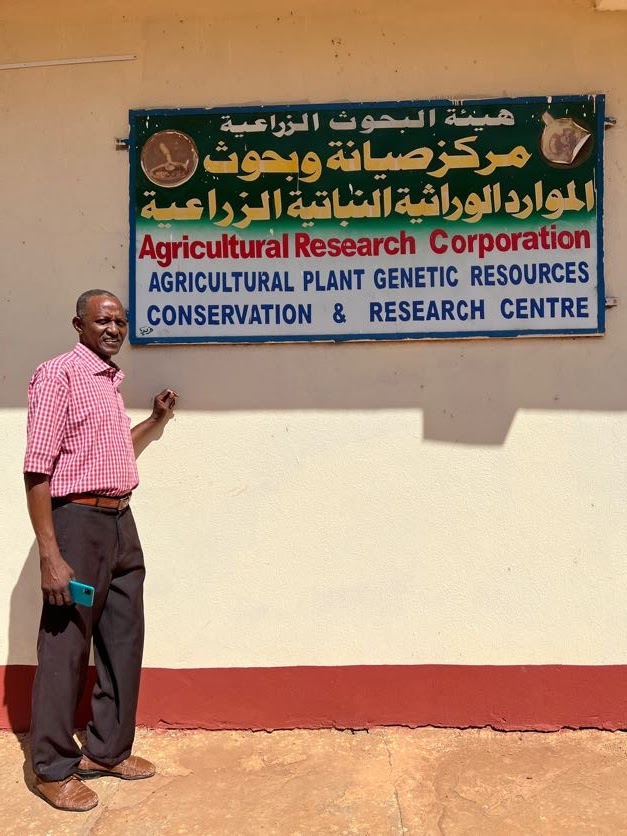
Ali Babiker, Director of APGRC
The Crop Trust and the Secretariat of the International Treaty on Plant Genetic Resources for Food and Agriculture (Plant Treaty) launched the Emergency Reserve in June 2021. It is the world’s first fund that provides financial support to genebanks under threat. With this funding, the APGRC procured and installed a solar energy system for its backup facility in Elobeid. Support from the Reserve ensured a stable electricity supply to power the freezers and also enabled staff to rapidly prepare samples for shipment to the Svalbard Global Seed Vault.
The Crop Trust, through the BOLD Project, supported the transfer of hundreds of seed samples to Norway. At NordGen, the Nordic Genetic Resource Center, staff sorted, catalogued, re-packed and documented them as part of the latest Sudanese deposit in the Seed Vault, the ultimate backup facility in the Arctic. The rescued Sudanese seeds were added to the Vault on 25 February 2025.
ICARDA also provided APGRC with aluminium foil packets to support further repacking of seed samples. You need the right foil packets to ensure the safety of seeds for decades.
Seeds of Hope
“In Sudan, where conflict has displaced more than eight million people and disrupted agriculture, these seeds represent hope,” says Ali Babiker.
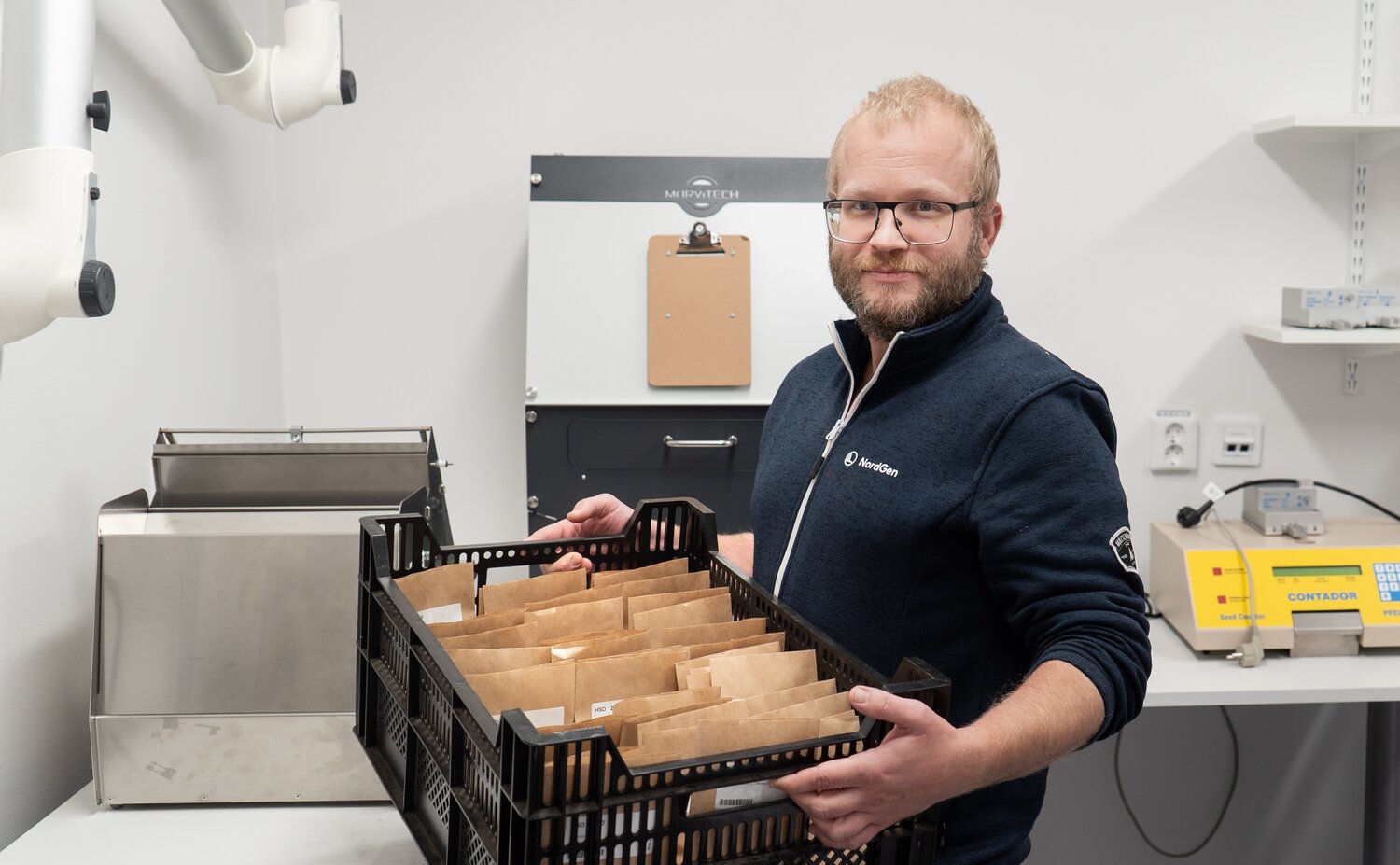
Johan Axelsson, head of NordGen’s seed lab, with some of the many seed samples now being dried at NordGen. Photo: NordGen
Sudan made its first Svalbard Global Seed Vault deposit in 2019 and sent seed samples of 15 species this year, including many varieties of sorghum. The crop has been cultivated in the region for thousands of years and is deeply tied to the nation’s cultural heritage.
“Its ability to withstand drought makes it crucial for adapting to climate change,” Babiker says. “By safeguarding this diversity in Svalbard, we’re preserving options for a resilient, food-secure future, regardless of the challenges we face.”
Sudan is now looking to rebuild its national genebank with international support. Initially, this will involve sorting and assessing materials to determine losses, as well as conducting germination tests to assess seed viability before proceeding to the regeneration stage in the field. New freezers will be needed, and other equipment, too.
“The civil war in Sudan is the latest reminder that unforeseen events can threaten the existence of genebanks at any time in any country,” says Nelissa Jamora, a manager with the BOLD Project and the Emergency Reserve. “But thanks to international collaboration and support from the Crop Trust, the Plant Treaty, ICARDA, NordGen, the Svalbard Global Seed Vault, and the government of Norway, valuable collections of crop diversity can be saved from being lost forever.”
Categories: For The Press, For Partners, For Policymakers, BOLD, Food Security, Nutritional Security

